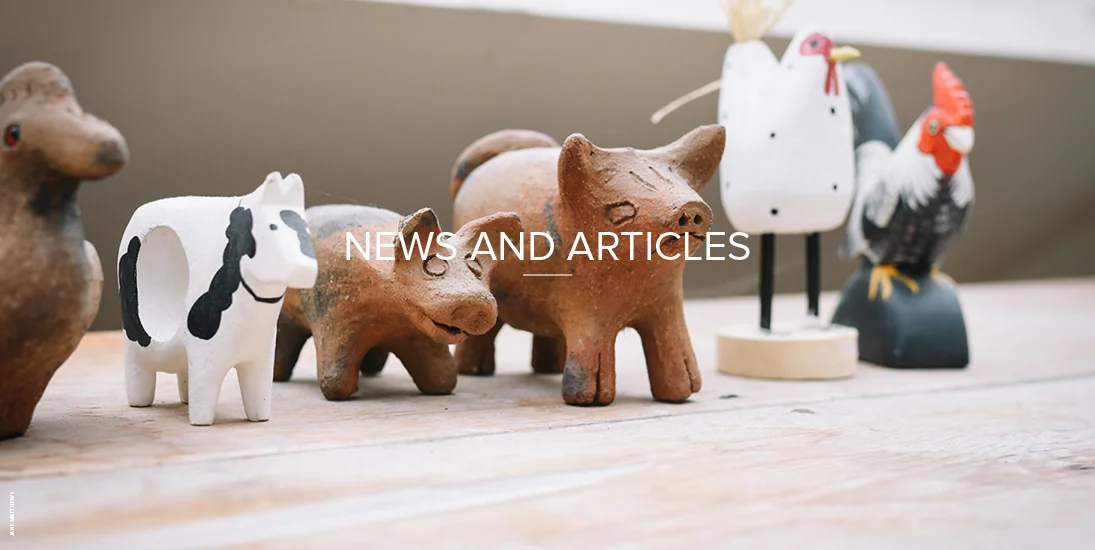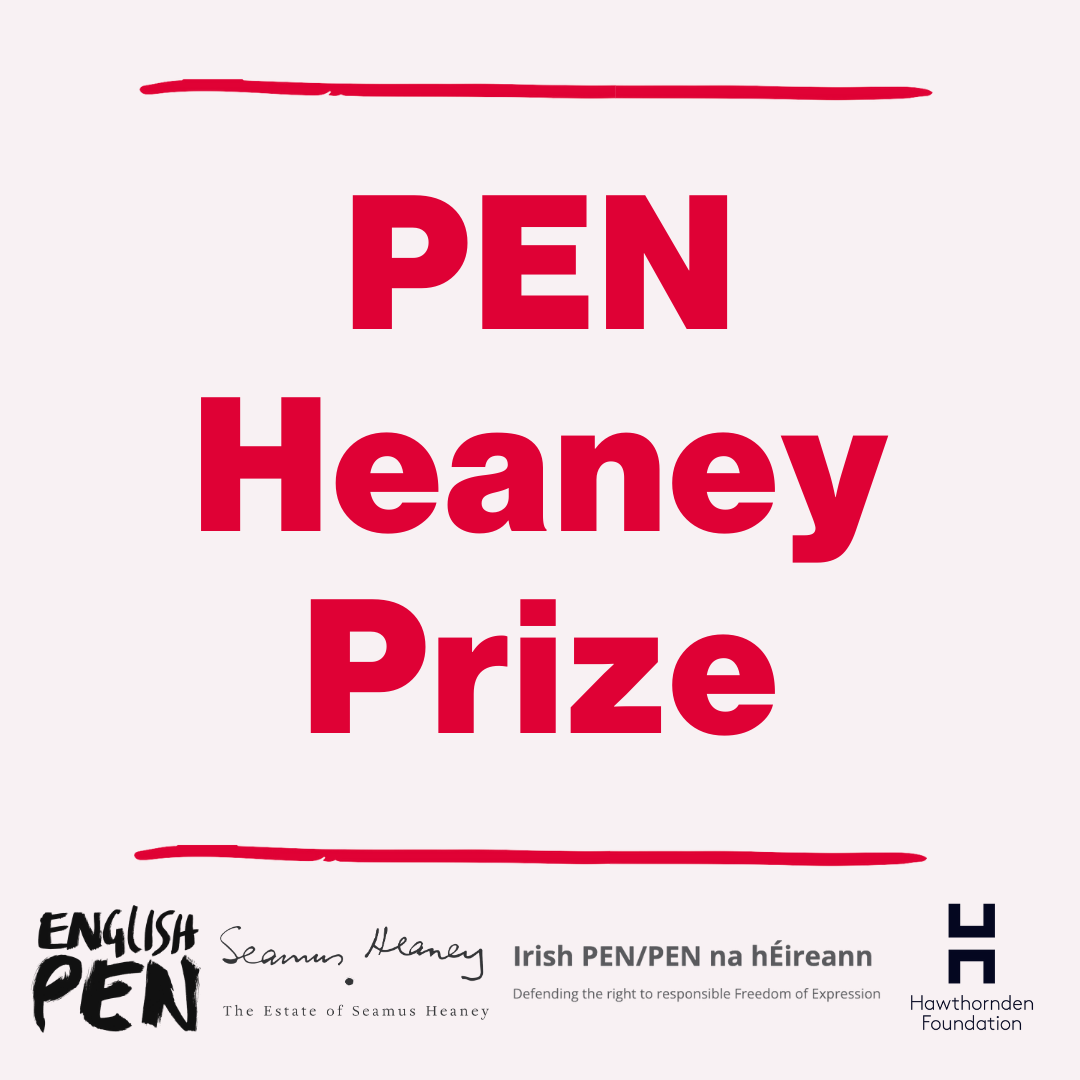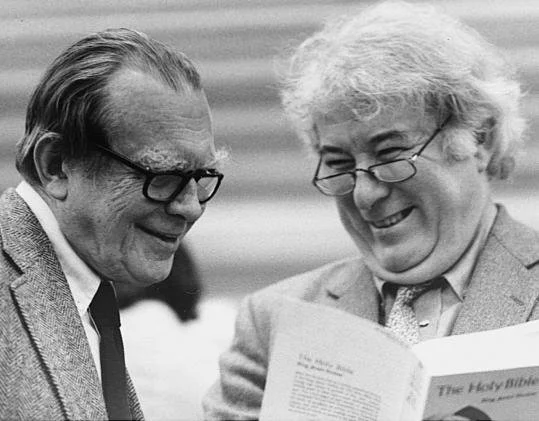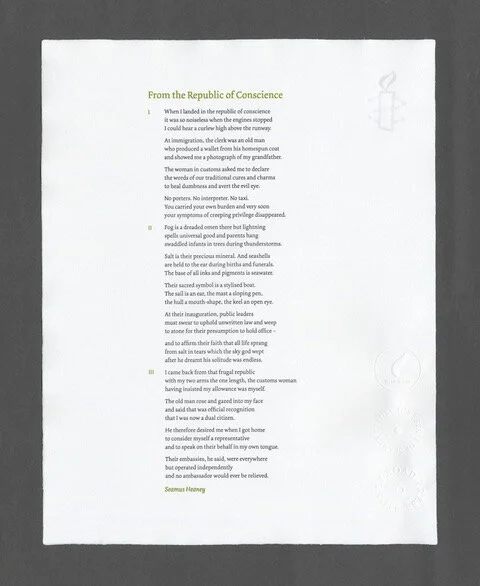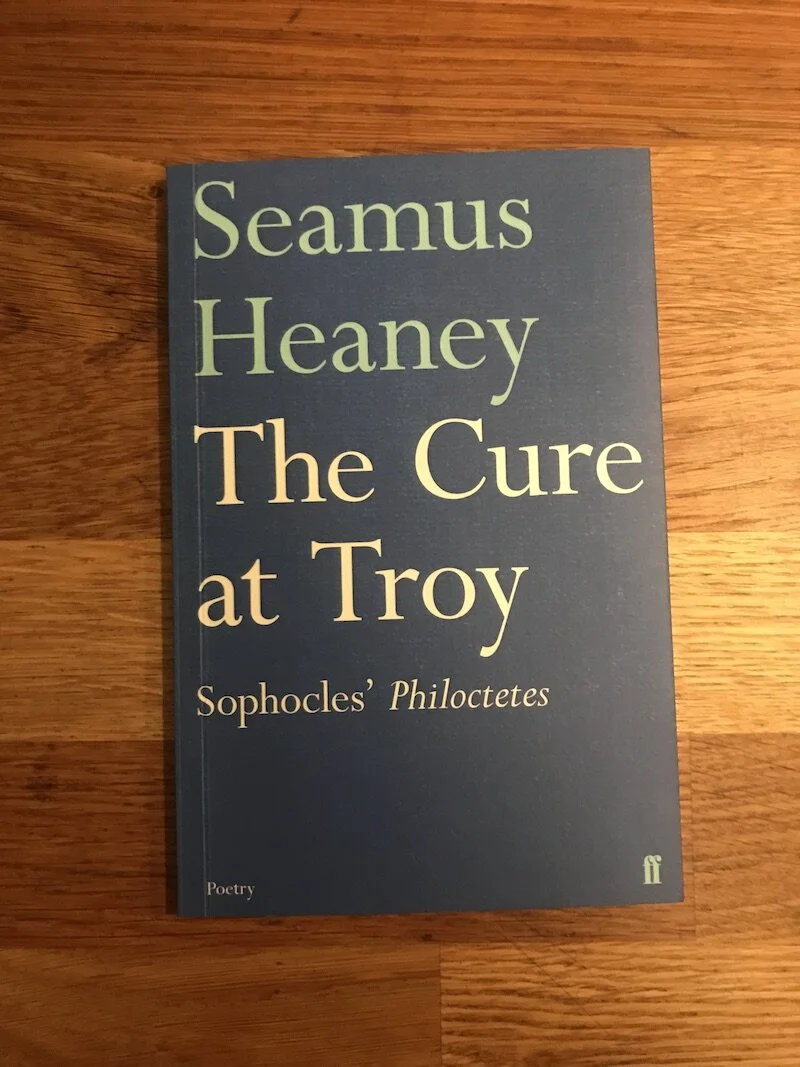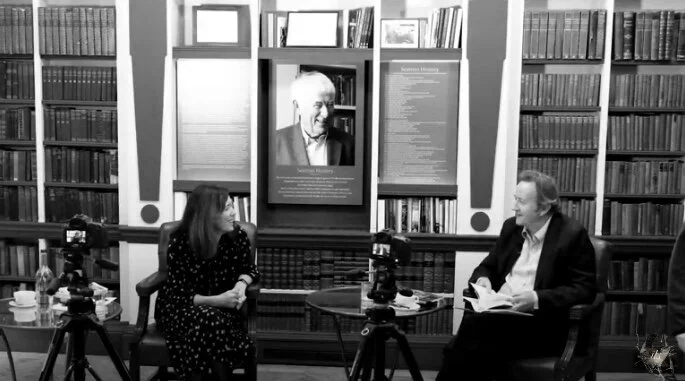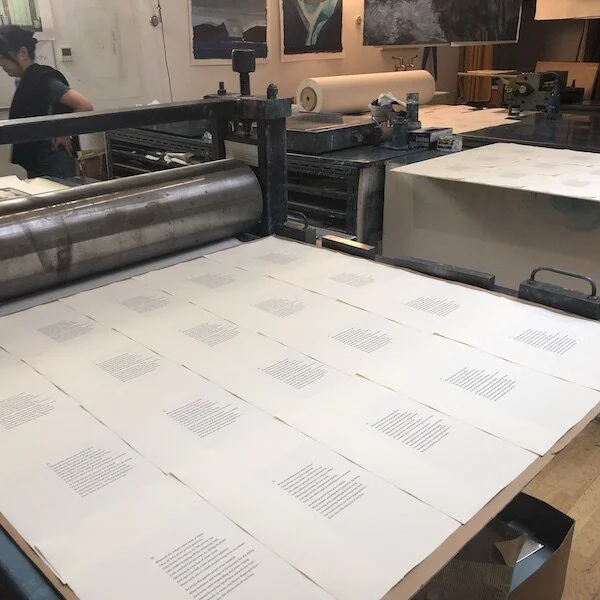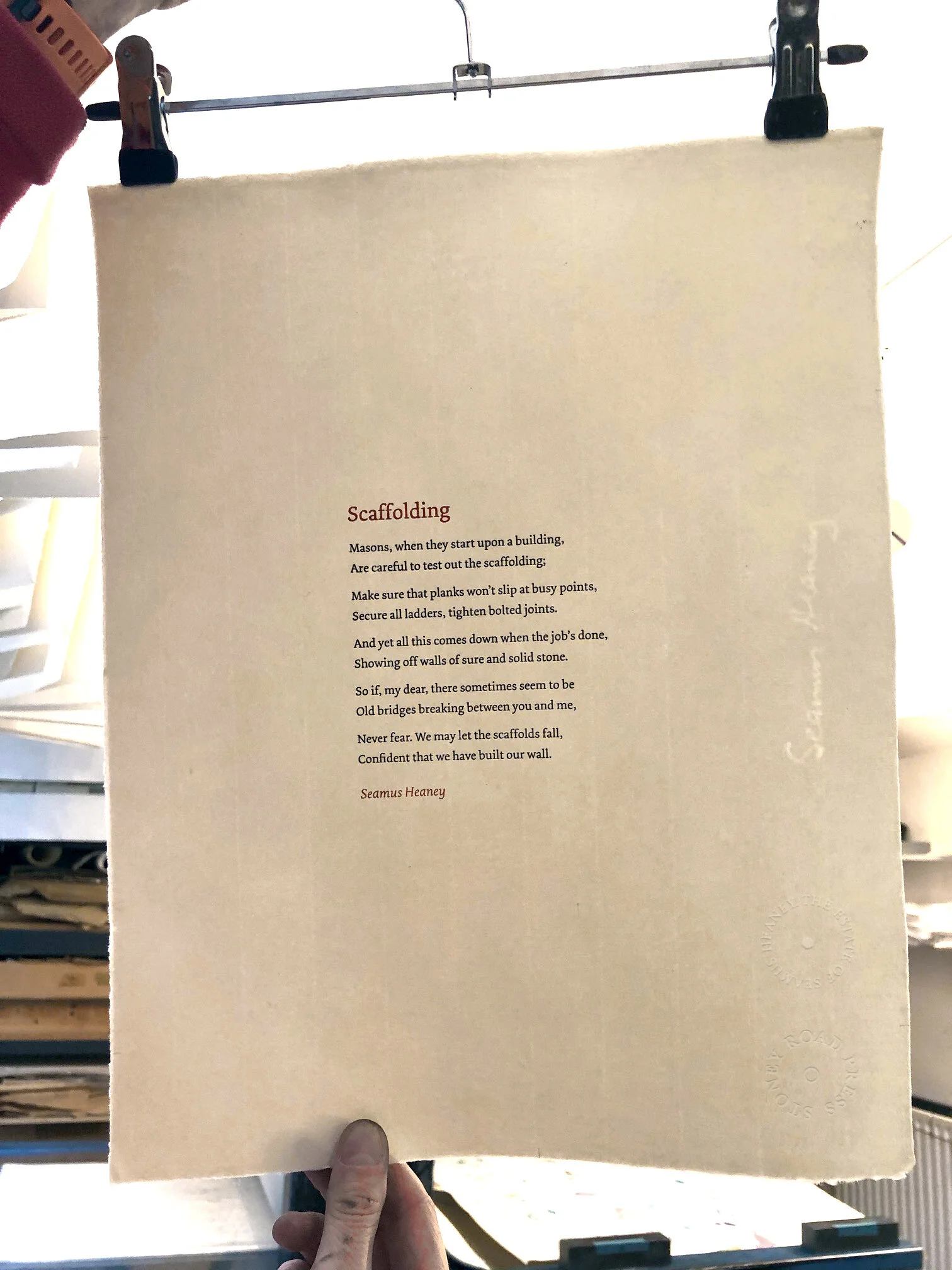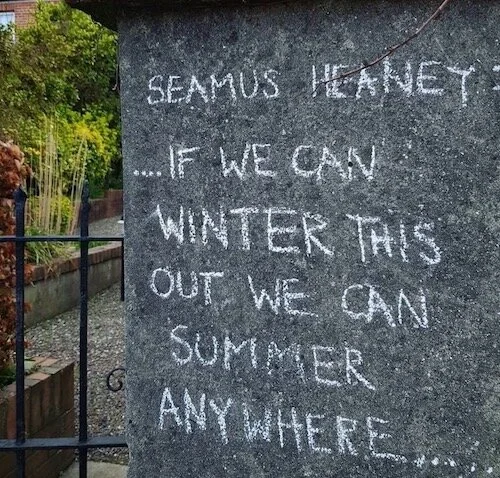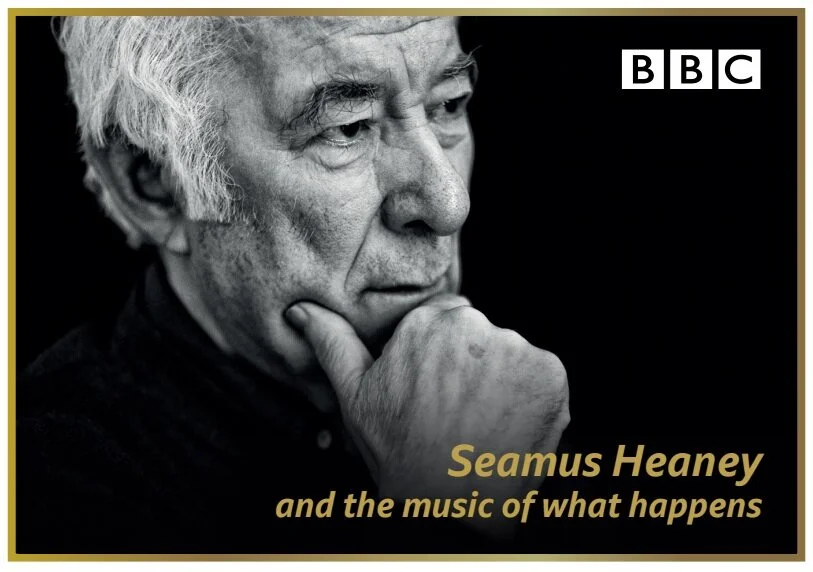One of the last projects Seamus Heaney ever collaborated on was adapting his translations of a series of 15th-century animal fables into a series of short animated films. The original fables were the work of Scottish poet Robert Henryson and, admiring the inventiveness and delicate humour in Henryson’s writing, Heaney set about translating them with the hope of bringing the work to a new audience. They were published in 2009 as The Testament of Cresseid & Seven Fables.
When approached a couple of years later with the idea of adapting these charming tales into animations, Heaney had the idea to approach the actor and comedian Billy Connolly to narrate the films. Connolly agreed and the result was a series of five short films – The Five Fables – made by Belfast-based animators Flickerpix and first broadcast on the BBC on the 13th March 2014, five years ago today. The animations are introduced by Heaney himself, who sadly did not live to see them completed, but who would have been gladdened to see them brought to life for a new generation.
Five medieval Scots fables, translated by Seamus Heaney, have been brought into the 21st century as enchanting animated tales for BBC Two Northern Ireland. Narrated by acclaimed comedian/actor Billy Connolly and with a specially-composed score by internationally renowned pianist Barry Douglas, Five Fables, made by local animation studio Flickerpix, is an ambitious re-telling of stories written 500 years ago by the medieval Scots poet, Robert Henryson. Beginning on BBC Two Northern Ireland on Thursday 13 March at 7pm, each of the five programmes in this series contain an introduction by Seamus Heaney, who was very much involved in all aspects of the project from its inception, and includes his final television interview before his death last summer; a fully animated fable, and some documentary elements about how these morality tales made it to the television screen.
The complete animations are available on the BBC iPlayer. They also featured on the Five Fables app, produced by TouchPress, Faber and Flickerpix, along with the original Scots versions and detailed academic analysis.
To mark the twentieth anniversary of EU’s Day of Welcomes, a short film of ‘Beacons at Bealtaine’, the poem Seamus Heaney wrote to celebrate the historic occasion
On the eve of what would have been Seamus’s 85th birthday, we are delighted to share news of a new venture we have been working on with our friends at English PEN and Irish PEN - the PEN Heaney Prize.
We are delighted to announce the Heaney-Miłosz Residency, a brand new partnership with the Irish Embassy in Poland and Kraków Festival Office, giving a writer the opportunity to spend time in Kraków, in the Czesław Miłosz apartment
With this unprepossessing and typically modest covering letter from 1985, Seamus Heaney submitted a first draft of his renowned poem ‘From the Republic of Conscience’ to Mary Fogarty, then head of the Irish branch of Amnesty International.
The National Library of Ireland presents an online event - available for seven days from Tuesday 8 December 2020 - celebrating 30 years since the first performance of Seamus Heaney’s play, The Cure at Troy, produced by the Field Day Theatre Company in 1990.
This autumn saw the publication of historian and biographer Roy Foster’s new study, On Seamus Heaney, part of Princeton University Press’s Writers on Writers series.
It has been a strange, uneasy summer - to put it mildly - but we’ve been lucky to have some good news to share at the end of it.
Over the past year, we’ve been working with the Dublin-based fine art print studio, Stoney Road Press, on a very special project.
Since the beginning of the current coronavirus crisis, people have been turning to poetry to express their bewilderment, to seek comfort, to put words to a situation that at times feels beyond comprehension.
Adam Low is the director of the recent BBC2 Arena documentary, Seamus Heaney and the Music of What Happens. Here he describes meeting the Heaney family for the first time and how he went about making this very personal and intimate documentary.

